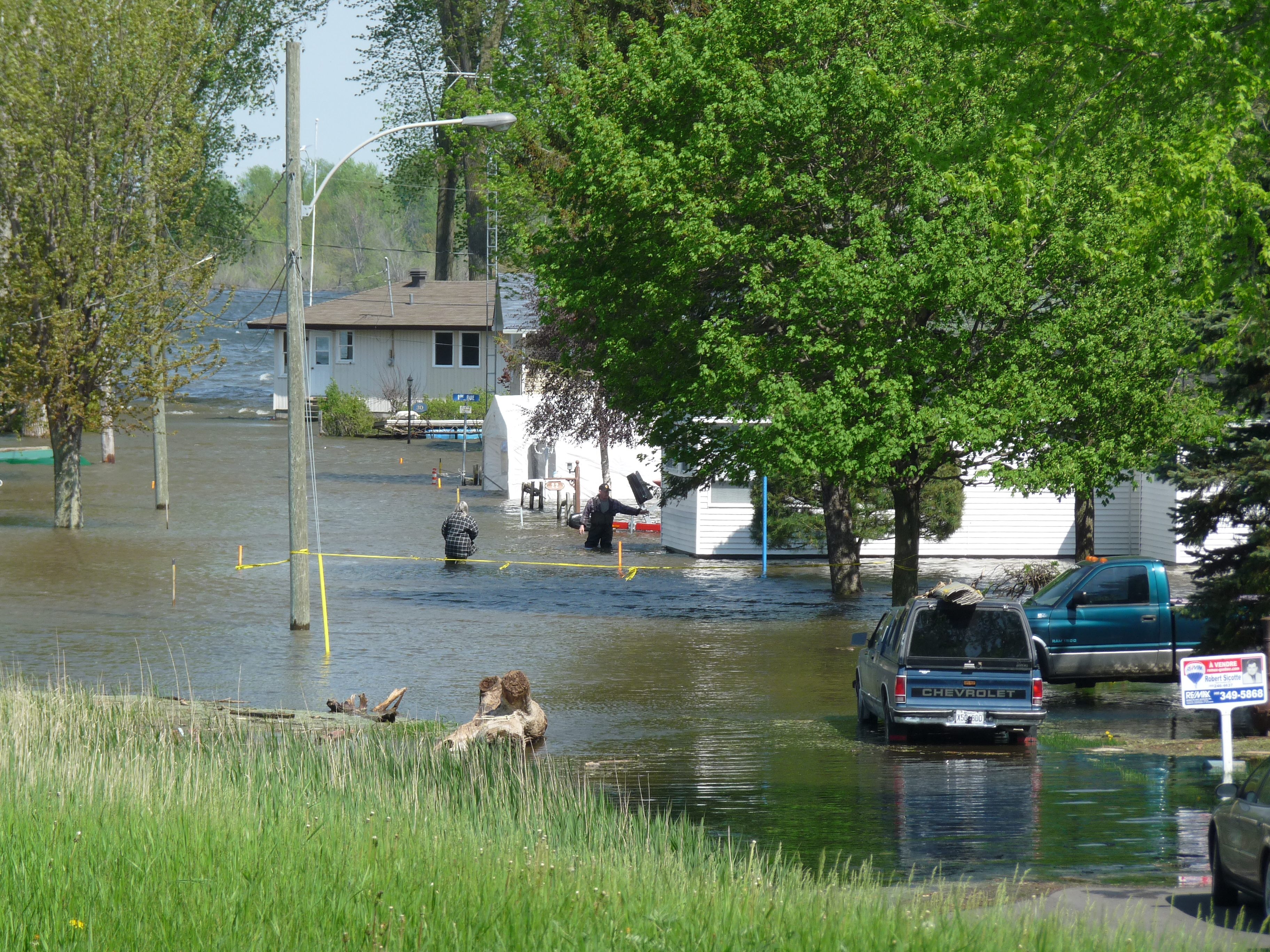The International Joint Commission (IJC) today announced that it has appointed a bi-national study board to undertake the work outlined in Option B of the 2013 Plan of Study to more fully explore the causes, impacts, risks, and solutions to flooding in the Lake Champlain-Richelieu River basin.
The Study Board’s research will focus on the following:
- the causes and impacts of past floods,
- floodplain best management practices and, adaptation strategies,
- real-time flood forecasting and mapping,
- social and political perception of structural and other mitigation measures,
- impact of flood management and mitigation measures on ecosystems, water use, the built environment and agriculture,
- data analysis and modelling.
According to the 2013 Plan of Study, climatic projections, wind wave and ice models, additional new data for the evolution of watershed physiographic characteristics over time, and a complete digital terrain model will also be produced to allow the planning, evaluation, and ranking of potential flood mitigation solutions, using a shared-vision approach. Resource response models will be developed and will include basic indicators for water resources response to water levels fluctuations, with special attention on the data inventory and identification of thresholds.
The IJC’s 2013 Plan of Study proposed three study options, A, B, and C. Option B provides much more depth than A, but lacks “the flexibility to assess the larger spectrum of water level fluctuations associated with structural measures that present more important regulation capacities and dredging of the rock shoal in Saint-Jean-sur-Richelieu,” reads the 2013 document.
The total cost of Study Option B is $11,315,000 and the duration is approximately 5 years.
The International Lake Champlain-Richelieu River Study Board’s is comprised of scientific experts drawn from the governments of Canada and the United States, Quebec, Vermont, and New York. A list of the Study Board membership is available here.
For information on the International Lake Champlain-Richelieu River Study Board visit the website: http://ijc.org/en_/LCRR.









